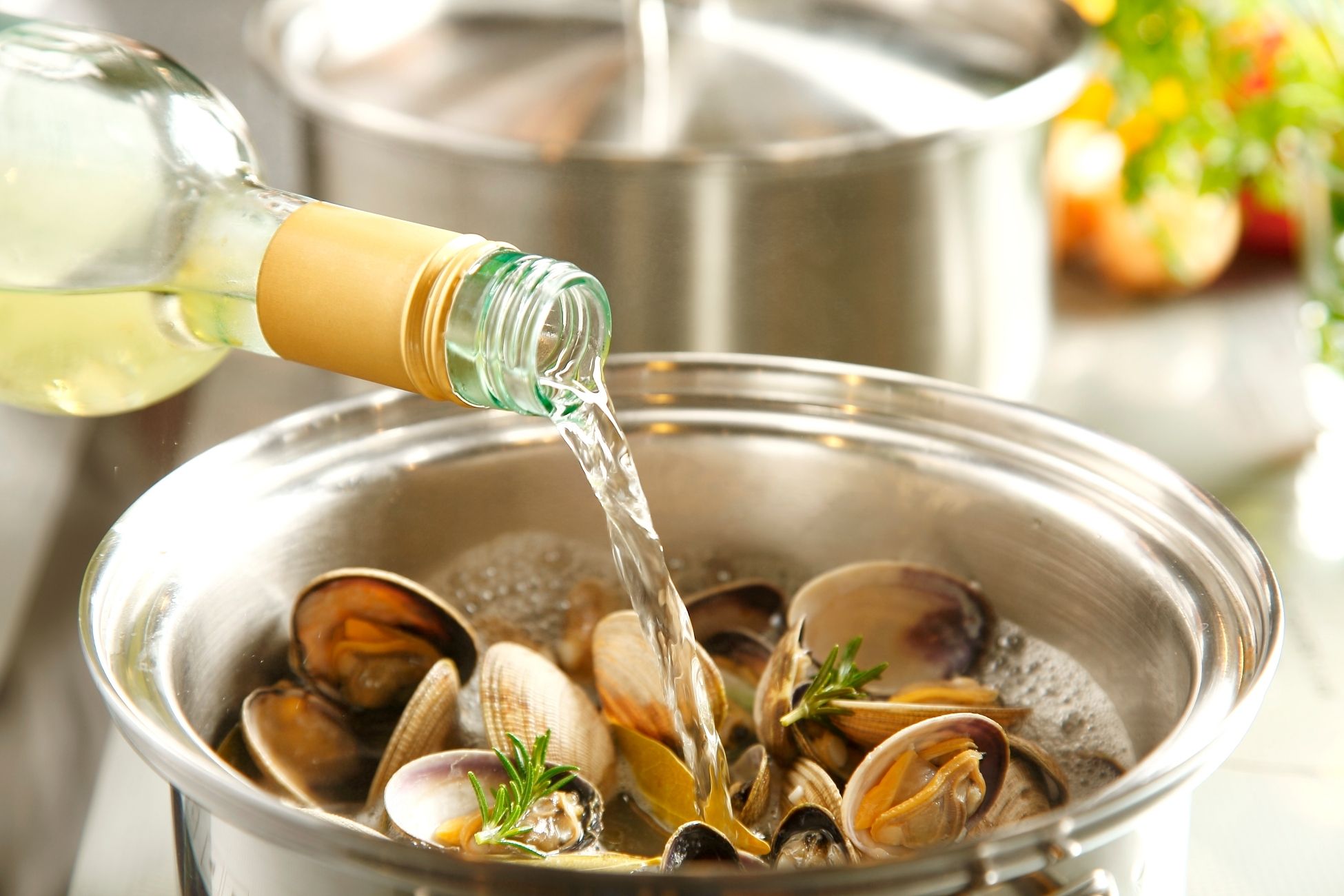The Best White Wines for Cooking
Posted on Posted in Cooking
A white wine is essential to bring balance, fruit and acidity to many recipes. Although grocery stores carry cooking wine, you’ll find even moderately priced white wine expands possibilities and cooking styles. By far one of the best wines to cook with is a dry, crisp white wine. A rich, oaky white can become bitter during the cooking process, while a sweeter white may caramelize or add unwanted sweetness to dishes. If a wine is cooked it will lose almost all the subtle nuances. Therefore if you’re using a high-quality wine it’s best to finish a dish with it instead. Otherwise, use a moderately priced, quaffable white wine and spend the extra money on premium ingredients.
- Crisp White Wine. An example would be Pinot Grigio, Sauvignon Blanc and Unoaked Chardonnay. These are going to be your go-to’s since there is a moderate alcohol content and generous acidity. A highly alcoholic wine will take longer to reduce and often lack in acidity. Pinot Grigio is the most neutral of the three, making it the most versatile. A Sauvignon Blanc gives more acidity which is perfect for seafood dishes or sauces utilizing heavy cream.
- Dry Sherry. Sherry is versatile, great for deglazing and bringing depth to a cream sauce. It’s perfect alongside appetizers such as oysters. If you add a dash of Sherry to a soup, you’ll have another layer of depth and dimension with an extra brightness.
- Dry Marsala. Although classic in a chicken or veal Marsala, you can incorporate this wine in braised preparations. Try adding it to a decadent zabaglione.
- Sparkling Wine. Perfectly suited for a Champagne vinaigrette or a sorbet. It’s also great as a substitute for dry, white wine in a beurre blanc. The bubbles from the wine will dissipate when cooked, so it’s a great opportunity when you find yourself with any leftover bubbly.
- Dry Madeira. This Portuguese fortified wine is produced in four distinct styles. A “sercial” dry style doubles as a refreshing aperitif. You can use this wine in a sauce for classic Beef Wellington or a savory addition to gravy. It’s also a substitute for Sherry in nearly every recipe.
Source: the Kitchn

